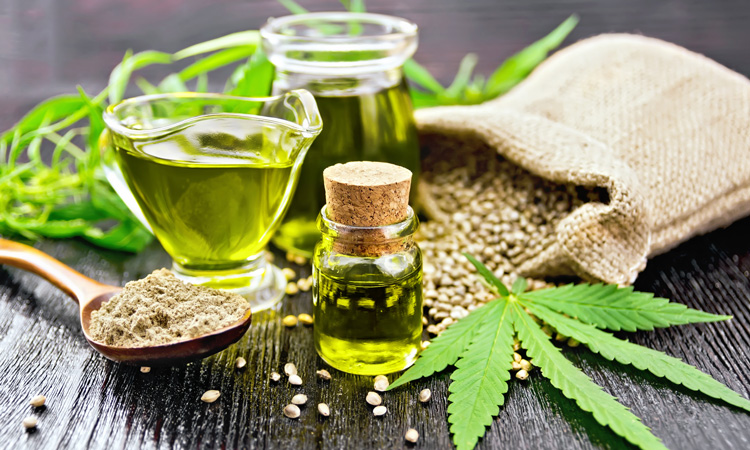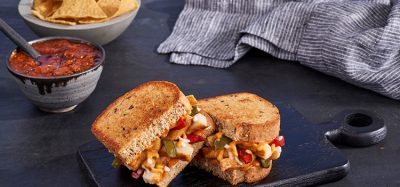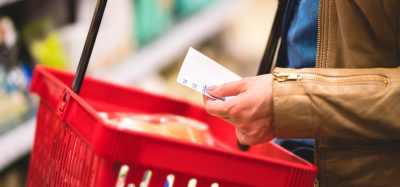ValidCare predicts top 10 2020 trends of US hemp-derived CBD industry
- Like
- Digg
- Del
- Tumblr
- VKontakte
- Buffer
- Love This
- Odnoklassniki
- Meneame
- Blogger
- Amazon
- Yahoo Mail
- Gmail
- AOL
- Newsvine
- HackerNews
- Evernote
- MySpace
- Mail.ru
- Viadeo
- Line
- Comments
- Yummly
- SMS
- Viber
- Telegram
- Subscribe
- Skype
- Facebook Messenger
- Kakao
- LiveJournal
- Yammer
- Edgar
- Fintel
- Mix
- Instapaper
- Copy Link
Posted: 8 January 2020 | Sam Mehmet (New Food) | 1 comment
Patrick McCarthy, CEO of ValidCare, the market intelligence and research platform, has made 10 predictions for the US hemp-derived CBD industry for 2020 and beyond, which include an increase in demand for traceability, more use of products by the elderly and tighter certification.


Some studies have shown that CBD can alleviate the symptoms of anxiety.
With the passage of the Farm Bill over a year ago, hemp was de-scheduled and legalised federally as an agricultural crop in the US. Since then, the consumers and commercial interest in hemp-derived CBD has intensified, spurring a flood of new businesses and products – from tinctures and edibles to beauty products and pet food.
So what’s in store for the US hemp-derived CBD product market in 2020 and beyond? Here are the top 10 predictions from Patrick McCarthy, CEO of ValidCare, the market intelligence and research platform made up of consumers, patients, care givers, businesses and organisations within the hemp-derived product industry:
1. Seed to sale
Today’s consumer cares about where the products they put in, and on, their bodies come from. From big breweries to boutique ice creams, mainstream brands showcase their farmers in their advertising and market organic, cruelty-free and hyper-local manufacturing practices on their packaging to assure consumers their products are natural, safe and worth a premium price. This trend will hit the hemp industry next, as consumers demand information on plant origin, farming practices, product composition and sustainability.
2. Milligrams matter
As consumer sophistication increases in 2020, they will demand easy and reliable ways to measure amounts when consuming or applying CBD and other cannabinoids. Brands should be prepared to provide clarity on consumable units of products like tinctures, edibles and topicals. This will be driven by consumers and regulators alike, requiring “metered” calibration of applicators like droppers or pumps, and standardisation of serving sizes for consumables.
3. The elderly
The elderly is one of the largest demographics using hemp-derived CBD for chronic joint pain and sleep. Expect this trend to increase as the elderly seek to replace prescription and OTC pharmaceuticals with hemp-derived products – and to lobby for coverage and/or reimbursement through FSAs, HSAs and supplemental MediCare policies.
4. Hemp nation
Today, one in five Americans report they use hemp-derived CBD for mental health reasons such as anxiety. In 2020, we will see even more people ditch Prozac prescriptions for non-impairing hemp-derived CBD to support their mental health goals. Expect brands targeting this audience to commission research on hemp-derived CBD’s functional benefits for mental health.
5. QR codes will be retired
Today it is best practice for manufacturers to put QR codes on packaging, pointing consumers to lab results in order to demonstrate product safety. As USDA certification is finalised, this stop-gap will be abandoned in favour of a “seal of approval” from the USDA or other standards body. We suspect some brands or industry coalitions will seize the marketing opportunity to create their own “Michelin Star” system to grade products and build consumer trust.
6. Data will be king
Broad categorical approval of CBD by the FDA will not move forward until leaders band together to provide the safety data FDA is requesting. Leading brands are expected to collaborate on human studies to demonstrate safe daily consumption amounts, even if it means de-emphasising their business interests in the near term to do what is right for the industry in the long term. Until this happens, expect more FDA and FTC letters and class actions to chip away at consumer confidence and add risk and cost to branded operations.
7. CBD will be in good company
CBD was this decade’s craze, but as the market for cannabidiol becomes oversaturated, product companies will introduce other interesting minor cannabinoids like CBN and CBG, already touted as having functional benefits tied to sleep and appetite. Expect the FDA to voice concerns about these “cannabis derived compounds” and mirror its communication to industry and the public about the need for these products to be properly vetted for safety and use – and for product companies to market them nonetheless.
8. Canada
Last year we witnessed a number of marijuana companies diversifying products and risks by introducing hemp-based wellness lines. In 2020, we expect Canada to take advantage of the depressed financial market and invest or buy US-based hemp companies as a way to enter the US market.
9. Competitor consolidation
Now that the first big harvest season is behind us, product companies with outside investments will be pressured to improve top and bottom line results and scale. Some will try to be good at everything from production through marketing and sales, but many will look to consolidate with other brands who have complementary skill sets and realise synergies to the bottom line.
10. Certification
2020’s more sophisticated consumers will choose hemp-derived CBD products that are certified by industry or credible regulatory agencies, leaving behind pithy names, labels and packaging in favour of measurable standards and certified product quality. Certification becomes a risk to a CBD company’s business plan, as brands that don not invest in certification risk loss of consumer trust.
Related topics
CBD hemp & cannabis, Food Safety, Health & Nutrition, Product Development, Research & development, The consumer
Related organisations
The US Food and Drug Administration (FDA), US Department of Agriculture (USDA), ValidCare









Great points you raised here more power